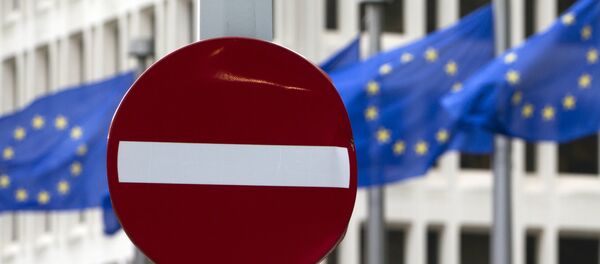According to the resolution voted by the lawmakers, the European Union’s multiannual financial framework (MFF) for 2014-2020 should become more flexible and enable the bloc to respond promptly to "unforeseen crises."
"A genuine mid–term revision of the MFF is indispensable to enable the Union to respond effectively to a number of challenges it currently faces, while fulfilling its political objectives. We expect the European Commission to table a thorough and honest review and as a consequence, a proposal for a set of qualitative and quantitative changes to the MFF that will allow the EU to adapt to today's situation and attain its political goals. The EU budget must reflect the Union's political commitments," lawmaker Jan Olbrycht said, as quoted by the EU Parliament.
The lawmakers recalled that the current MFF was approved in 2013, and a number of new challenges had emerged since then, in particular, the migrant crisis, security issues, the crisis in agriculture, and high unemployment, especially among young people.
"The shortage of resources has forced the EU to set up ad hoc instruments such as funds financed jointly by the member states, the EU budget and the EU Development Fund…. But the proliferation of such instruments, in the absence of an overall budgetary strategy for dealing with crises, creates a problem of accountability and democratic control in the EU," the lawmakers concluded.
Since 2015, major shocks hit the European Union, in particular, in the face of migration crisis, which made the states agree a mandatory relocation quota system, enhance border controls and allocate additional aid to the refugee and rights protection bodies. Moreover, devastating terrorist attacks hit Brussels and Paris in November and March, respectively, prompting EU authorities to boost safety and security and engage in the international fight against terrorism.
The United Kingdom's legitimate decision to leave the bloc came as the most recent radical change as 51.9 percent of Brits supported the country withdrawing from the European Union. After the official results were revealed, UK Prime Minister David Cameron, who had led the Remain campaign, said he would resign in October.




